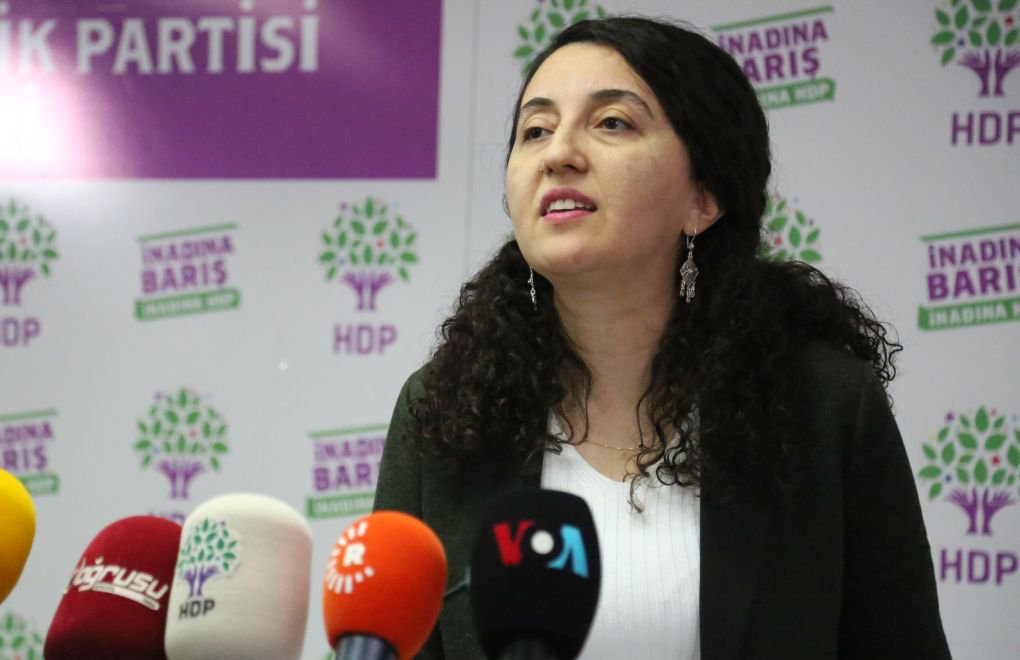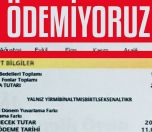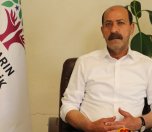* Photo: HDP
Click to read the article in Turkish
Peoples' Democratic Party (HDP) Spokesperson Ebru Günay held her weekly press briefing yesterday (February 10). Addressing the reporters at the HDP Central Office in the capital city of Ankara, Ebru Günay talked about the economic crisis in the country, especially within the context of difficulties in making ends meet amid increasing prices of basic needs.
In her statement, Günay recalled that price increases faced by citizens are not limited to electricity, noting that "citizens are faced with darkness and hunger as the prices of all items such as natural gas, fuel oil, bridge and highway fees have seen a 100-percent increase."
"The wheel of hunger and exploitation has become unbearable," she said, recalling that citizens now take to the streets "saying 'enough is enough' to the electricity bills which have turned into a robbery".
Referring to these protests where citizens set their electricity bills on fire and calling on the Justice and Development Party (AKP) government to resign, Ebru Günay said, "We have been going through the coldest winter of the past 30 years, but citizens cannot get warm. Especially the electricity bills sent to workplaces lead to poverty and unlawfulness."
Raising concerns that citizens "take loans to pay their bills", Günay said, "Citizens first save on their food and medication. Seeing that it is not enough, they receive a loan, so they get into debt, to pay their debts."
Günay also talked about the days-long city-wide power cut in Isparta amid snowfall and adverse winter conditions. Recalling that the Chamber of Electrical Engineers has warned against privatization in the energy sector, Günay said, "The fate of the entire country will be like Isparta."
Holding the AKP government responsible for the power cut in Isparta, Günay raised concerns that "Turkey is the country which uses the most expensive electricity, natural gas and fuel oil in the world."
Accordingly, the HDP Spokesperson recommended that the power generation and distribution services should be nationalized and all increases made in the electricity bills since 2018 should be withdrawn.
'Djemevis' are not business concerns'
Günay also mentioned the decision of djemevis, where the Alevi community worship, to not pay their electricity bills in protest.
As djemevis are not officially recognized as places of worship in Turkey, they are not exempted from making this payment themselves.
Faced with high electricity bills especially as a result of the price increases that entered into force in Turkey in the new year, the officials of several djemevis have stated, "Djemevis are not business concerns" and announced that they will not pay their electricity bills.
Speaking in this context, Günay said, "Djemevis are places of worship. Society and all world countries accept this reality. Djemevis are Alevis' places of worship. But the government has not accepted this reality. For years, Alevi institutions are seen as business concerns and they are faced with electricity bills as high as 50,000 TRY. These bills are an open indication of denial."
Underlining that "it is not only a material atrocity, but also open evidence of discrimination against Alevi community", Günay said:
"Alevi institutions have been standing up against this discrimination. And they have announced that they will not pay their electricity bills. This is an extremely legitimate and rightful protest.
"We would like to declare that we stand with the Alevi institutions that react against this discrimination and this atrocity of price increases."
Concluding her remarks, HDP's Ebru Günay also expressed the HDP's support for workers' protests across Turkey, underlining that all these protests are for "extremely legitimate and rightful demands." (AS/SD)










